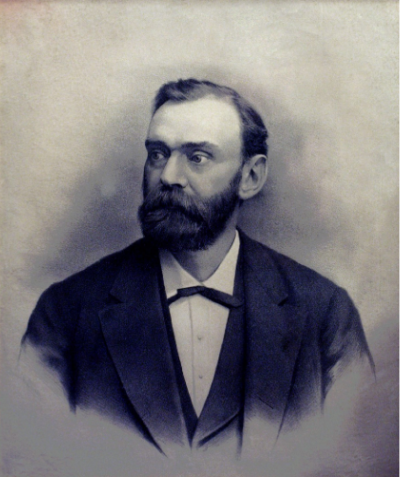We are all familiar with the Nobel Prizes given in the fields of economics, physics, chemistry, literature, peace, and medicine. But do we know the story behind this award? After coming to Sweden, I had heard about the story of the Nobel Prize from many people, but I hadn’t researched it. During our trip to Stockholm with our classmates, when I learned the whole story at the Nobel Museum visit, it caught my interest, and I decided to share it with you.
Alfred Bernhard Nobel, who bequeathed the Nobel Prize, was born on October 21, 1833, in Stockholm. Nobel begins to receive special education in the fields of natural sciences and literature. He learns Russian, French, English, and German and speaks these languages fluently. He receives chemical engineering education in Sweden, Germany, France, and the USA. Nobel, who worked on a liquid explosive called nitroglycerin, experiences an explosion during his work in Stockholm in 1864, resulting in the loss of five lives, including his younger brother. Following this accident, Nobel’s work within the boundaries of Stockholm is prohibited. Continuing his work in another city, Nobel eventually succeeds after much effort. He invents dynamite, which was widely used in the past and is still used today, and obtains the patent on September 19, 1867.[1]
In addition to dynamite, Nobel owns 355 patents and establishes 93 factories in 20 different countries.[2] During his lifetime, 30% of all patents in Sweden belonged to Alfred Nobel. Nobel, who passed away in 1896, stipulated in his will that a small portion of his approximately 180 million-dollar wealth should be left to his relatives, and the rest should be used to establish a foundation, and awards should be given annually to individuals serving humanity.[3]
Criticism was abundant during his time due to his work on explosives that caused the loss of life both in his own country and worldwide. However, Alfred Nobel’s wish was fulfilled, and the foundation was established. A group of economists was engaged to evaluate who the awards should be given to for controlling the wealth. The Nobel Prizes, which have been awarded to nearly 900 individuals to date, were first awarded in 1901 to Wilhelm Conrad Röntgen in physics, J. Henricus van’t Hoff in chemistry, Emil von Behring in medicine, and Sully Prudhomme in literature.
The ongoing Nobel Prizes are awarded each year by the Royal Swedish Academy of Sciences, the Nobel Assembly at the Karolinska Institute, the Swedish Academy, the Sveriges Riksbank, and the Norwegian Nobel Committee.[4]
The Nobel Peace Prize, initiated by Alfred Nobel, holds a special importance due to its contribution to universal values. Alfred Nobel conveys the message with this award that it is possible to live in a world of peace and tolerance, based on common values, without war. The award reminds us that for peace to be sustainable and enduring, and accepted as a lifestyle, we need to focus on dialogue and compromise rather than conflict, division, and violence. The Nobel Peace Prize draws attention to the fact that by placing justice, human rights, honesty, and tolerance, which are universally valid, at the center of our lives, we can make the world a more livable place and calls on us to contribute to world peace by indicating ways to unite on universal values.
[1] sv.wikipedia.org/wiki/Alfred_Nobel
[2] Nobel Prize Museum, Alfred Nobel’s patents




